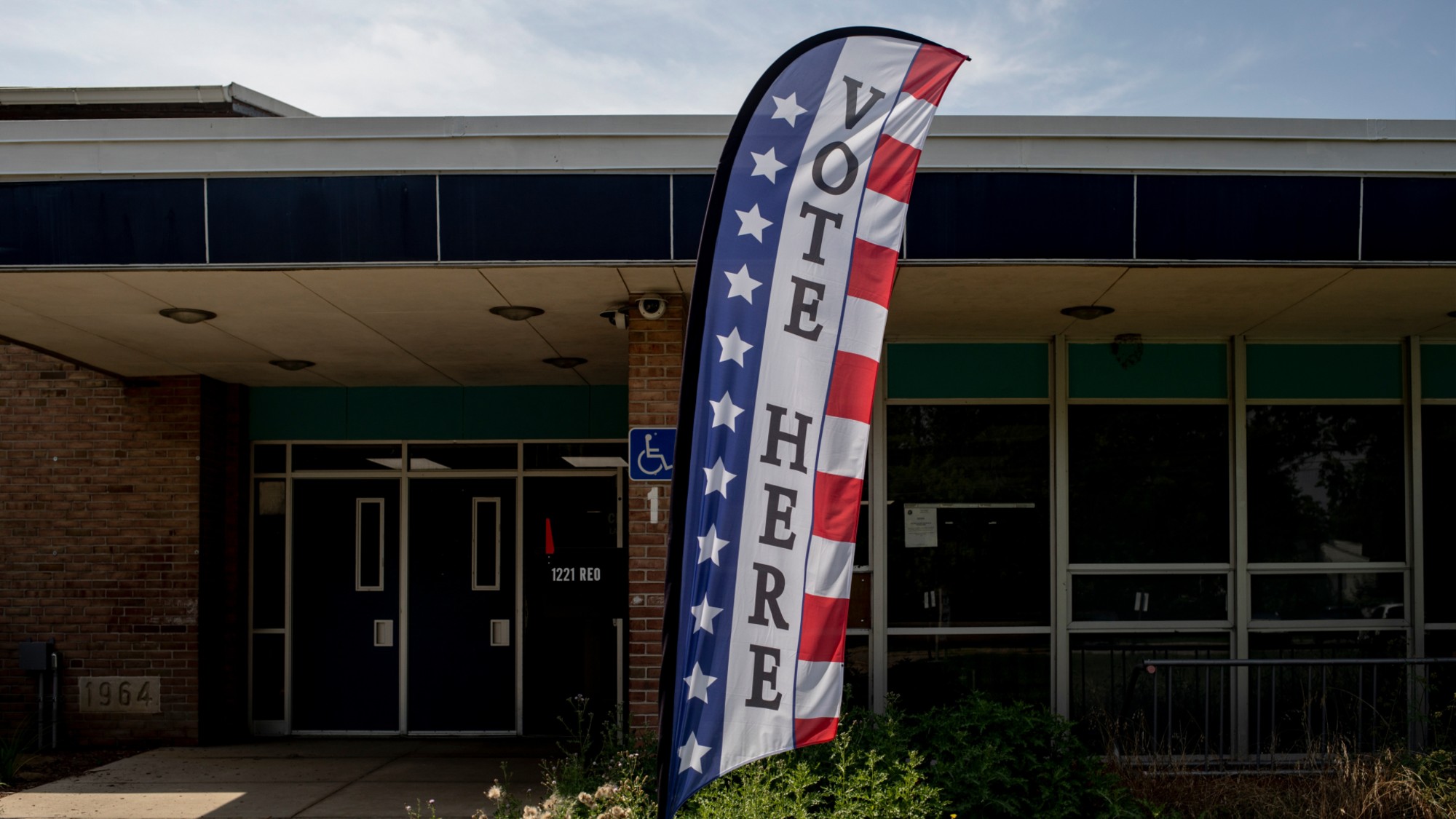‘Making a political donation shouldn’t be this dangerous’
Opinion, comment and editorials of the day


A free daily email with the biggest news stories of the day – and the best features from TheWeek.com
You are now subscribed
Your newsletter sign-up was successful
‘Making a political donation shouldn’t be this dangerous’
Dara Lindenbaum at The Washington Post
Many Americans “don’t realize that a small political contribution can result in their home address being posted online,” and in “some cases, this reporting requirement poses real safety risks,” says Dara Lindenbaum. Congress “should amend the relevant provisions of the act to eliminate the requirement that the FEC publish individual contributors’ street names and numbers.” The public has a “right to know who is funding political campaigns,” but “Americans shouldn’t have to risk their personal safety to participate in democracy.”
The Week
Escape your echo chamber. Get the facts behind the news, plus analysis from multiple perspectives.

Sign up for The Week's Free Newsletters
From our morning news briefing to a weekly Good News Newsletter, get the best of The Week delivered directly to your inbox.
From our morning news briefing to a weekly Good News Newsletter, get the best of The Week delivered directly to your inbox.
‘The new citizenship test is still useless’
Stephen Mihm at Bloomberg
The “Trump administration has been routinely targeting legal pathways to citizenship,” so it’s “no surprise that the White House is now reinstating an expanded citizenship exam,” says Stephen Mihm. Some “argue the test is meant to instill American values, but it’s long been a poor tool for that purpose because it awards rote memorization — rather than genuine understanding — of U.S. history and government.” It’s “time for the U.S. to reassess how it assesses qualifications for citizenship.”
‘Qatar strike creates rift but not rupture in Gulf-Israel ties’
Mina Al-Oraibi at Foreign Policy
In “hitting a Gulf country, the Israeli prime minister crossed a geopolitical line his country had never crossed,” says Mina Al-Oraibi. The “fallout from the Doha strike will be felt in four realms — Doha’s role as mediator, Israel’s relationship with Qatar, threat perceptions in the Gulf, and the wider Israel-Palestine dynamic.” Gulf countries “continue to be committed to a longer-term peace deal with Israel, but there is increasingly a sense that the current government has no interest in peace.”
‘There’s too much of everything’
Christian Schneider at the National Review
Whether it’s the “Star Wars extended universe or the DC Comics world, these beloved brands are drowning us,” says Christian Schneider. Where it was “once a challenge to seek out merchandise related to your favorite movie or show, now it’s difficult to avoid.” While in “some respects this era of entertainment and information abundance has improved our lives, it has also devalued our favorite things.” The “more information we are deluged with, the less important it all becomes.”
Justin Klawans has worked as a staff writer at The Week since 2022. He began his career covering local news before joining Newsweek as a breaking news reporter, where he wrote about politics, national and global affairs, business, crime, sports, film, television and other news. Justin has also freelanced for outlets including Collider and United Press International.
-
 6 exquisite homes with vast acreage
6 exquisite homes with vast acreageFeature Featuring an off-the-grid contemporary home in New Mexico and lakefront farmhouse in Massachusetts
-
 Film reviews: ‘Wuthering Heights,’ ‘Good Luck, Have Fun, Don’t Die,’ and ‘Sirat’
Film reviews: ‘Wuthering Heights,’ ‘Good Luck, Have Fun, Don’t Die,’ and ‘Sirat’Feature An inconvenient love torments a would-be couple, a gonzo time traveler seeks to save humanity from AI, and a father’s desperate search goes deeply sideways
-
 Political cartoons for February 16
Political cartoons for February 16Cartoons Monday’s political cartoons include President's Day, a valentine from the Epstein files, and more
-
 ICE eyes new targets post-Minnesota retreat
ICE eyes new targets post-Minnesota retreatIn the Spotlight Several cities are reportedly on ICE’s list for immigration crackdowns
-
 ‘Those rights don’t exist to protect criminals’
‘Those rights don’t exist to protect criminals’Instant Opinion Opinion, comment and editorials of the day
-
 ‘This is something that happens all too often’
‘This is something that happens all too often’Instant Opinion Opinion, comment and editorials of the day
-
 ‘The mark’s significance is psychological, if that’
‘The mark’s significance is psychological, if that’Instant Opinion Opinion, comment and editorials of the day
-
 How did ‘wine moms’ become the face of anti-ICE protests?
How did ‘wine moms’ become the face of anti-ICE protests?Today’s Big Question Women lead the resistance to Trump’s deportations
-
 The UK expands its Hong Kong visa scheme
The UK expands its Hong Kong visa schemeThe Explainer Around 26,000 additional arrivals expected in the UK as government widens eligibility in response to crackdown on rights in former colony
-
 ‘Hong Kong is stable because it has been muzzled’
‘Hong Kong is stable because it has been muzzled’Instant Opinion Opinion, comment and editorials of the day
-
 How are Democrats trying to reform ICE?
How are Democrats trying to reform ICE?Today’s Big Question Democratic leadership has put forth several demands for the agency
